Information technology (IT) is an essential part of almost every industry in today’s digital world. Some of the most common roles advertised as part of IT are software developer, systems analyst, network administrator, and more. Many different roles fall under Information Technology (IT) umbrella, each with its specific job responsibilities. And to be successful in your career as an IT professional, it’s crucial you understand which one aligns most closely with your skillset and interests. Knowing what to include on your resume can be challenging when you have a very niche set of skills. If you’re reading this, it means you’re looking for some help in creating a killer resume that will catch the attention of hiring managers and recruiters.
Information Technology Resume Example

Download This Information Technology Resume as PDF
Systems Administrator Resume Example
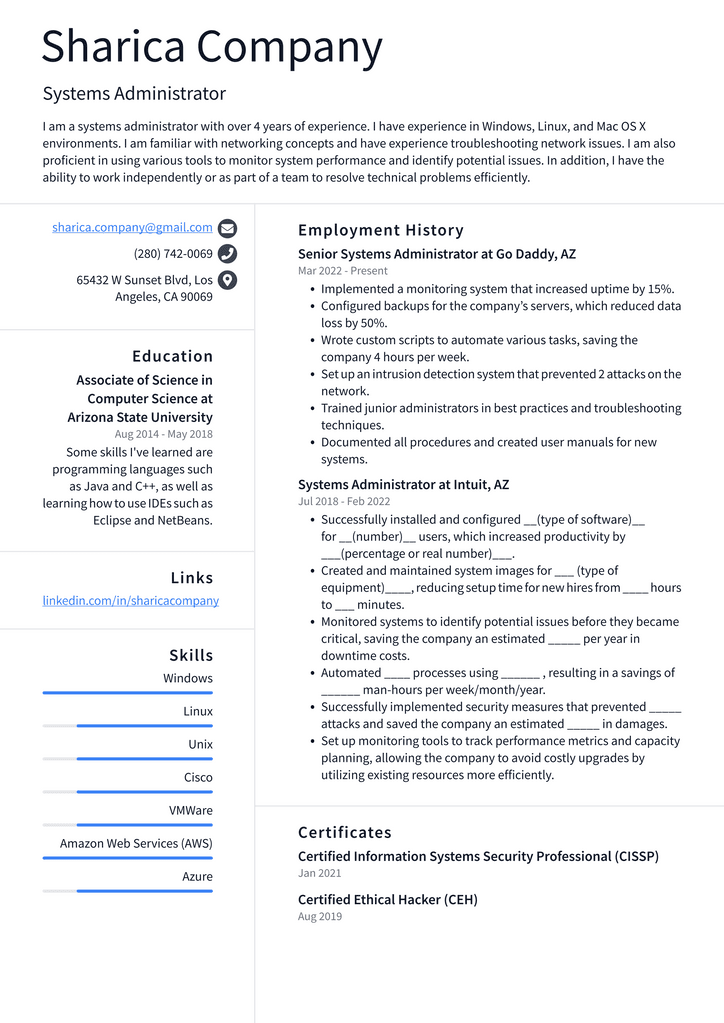
Download This Systems Administrator Resume as PDF
Network Administrator Resume Example
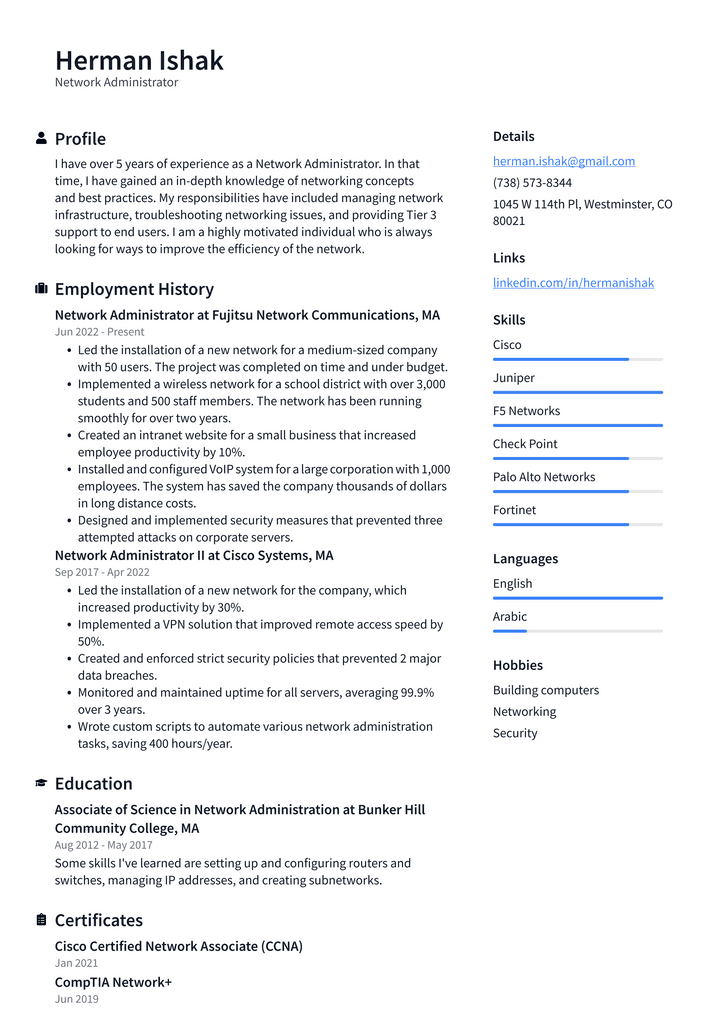
Download This Network Administrator Resume as PDF
Network Engineer Resume Example
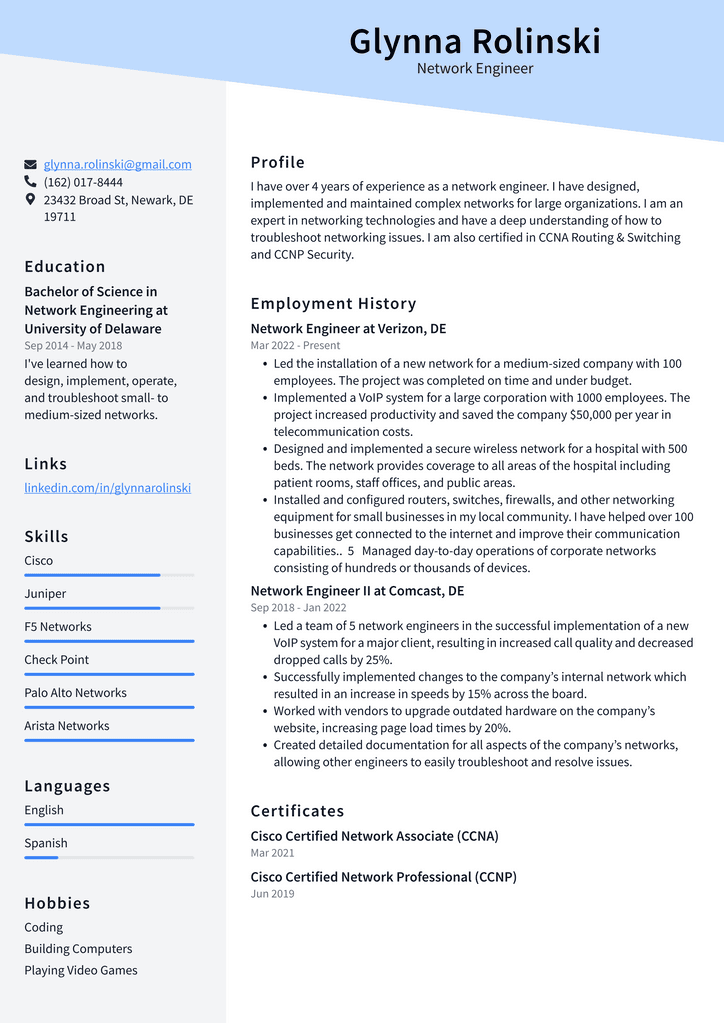
Download This Network Engineer Resume as PDF
Systems Engineer Resume Example
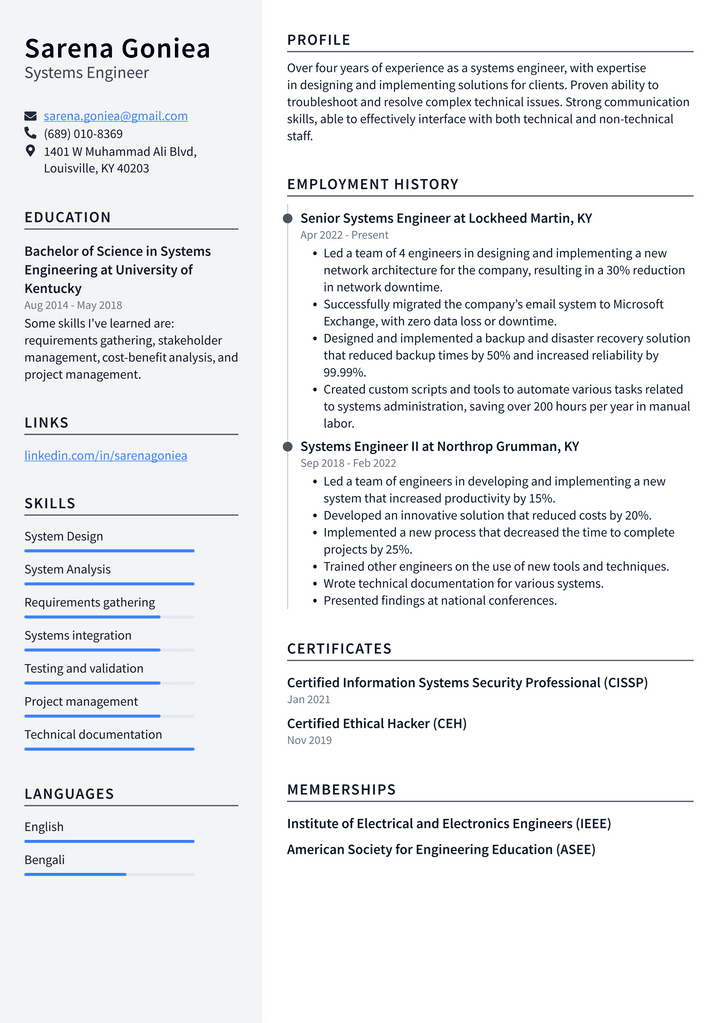
Download This Systems Engineer Resume as PDF
Database Administrator Resume Example
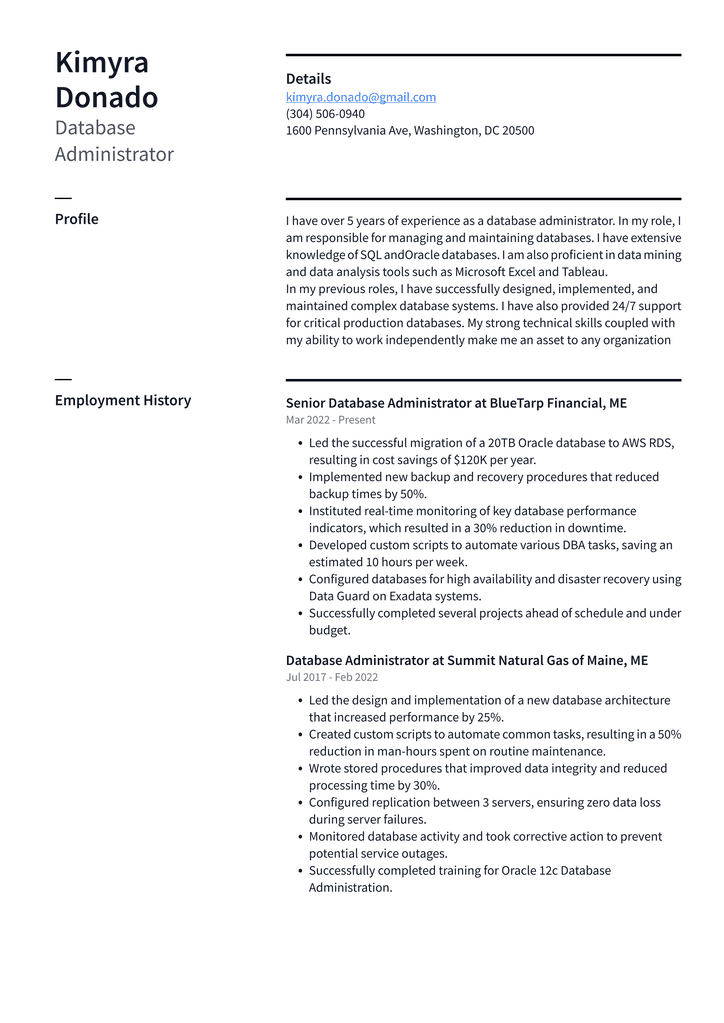
Download This Database Administrator Resume as PDF
Security Administrator Resume Example
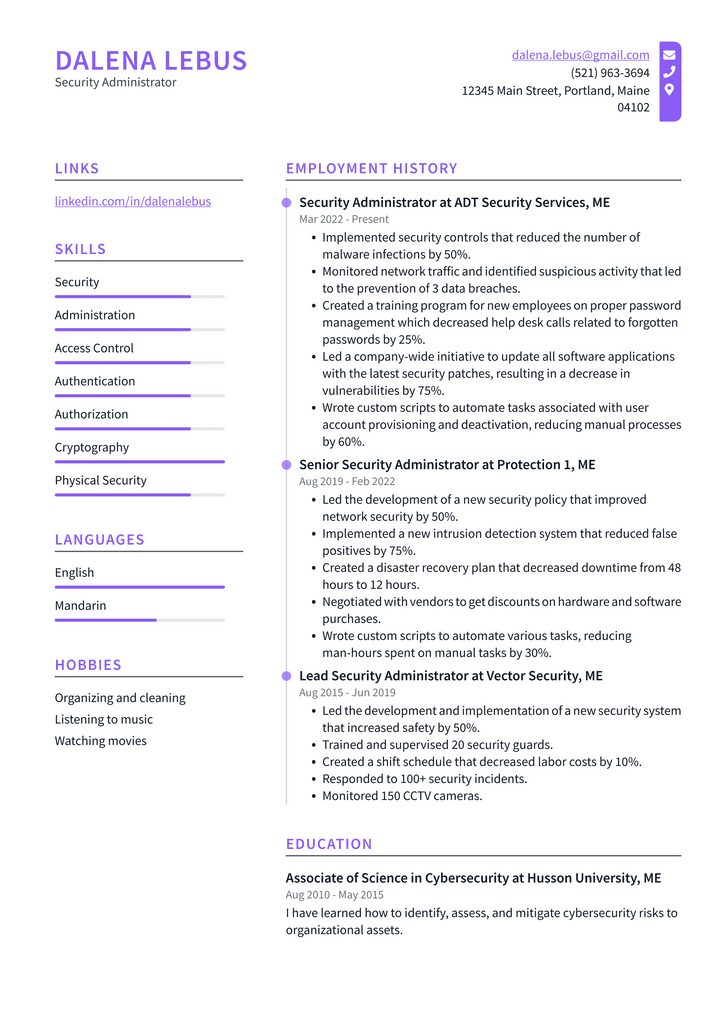
Download This Security Administrator Resume as PDF
What to Include in an IT Resume
Before you begin writing your resume, it’s essential to take a step back and consider what hiring managers are looking for when reviewing resumes for IT positions. And the most important thing to remember is that hiring managers aren’t just looking for relevant work experience; they’re looking for relevant work experience that shows you have the skills and qualifications to excel in the position they’re hiring for. So, under each of the following sections, we’ll go over the things you should include on your resume to help you make this happen. And be sure to visit our resume objectives examples to understand how each section ties back to your resume’s overall goal.
Skills to include in an IT resume
Depending on the position you’re applying for, you might get away with just including a list of your previous job titles and employers on your resume. However, this resume only works if you’re applying for an entry-level, general IT position where your specific skills aren’t as necessary. If you’re applying for a more specialized job, your resume will likely be flagged as one of the “first cut” candidates, sent to the bottom of the pile, or even tossed out entirely if you don’t demonstrate your expertise with specific skills. You can highlight many skills on your resume if you work in IT. Still, the most important ones are software development languages and programming languages, operating systems, networking protocols, and security protocols. If you have hands-on experience writing code, that’s one of the most important skills you can include on your resume.
Which Skills Should You Focus on?
When deciding which skills to focus on, you should keep a few things in mind. First, you should choose skills relevant to the job you’re applying for, but you should also select skills you’re comfortable and proficient with. For example, suppose you’re applying for a job as a network administrator, but you have only used routers and switches and have never used a firewall. In that case, you’ll want to make sure you only list skills that demonstrate your proficiency with those technologies. Another essential thing to keep in mind when selecting your skills is the level of specificity you use when naming the skills on your resume. Your skills should be specific enough to demonstrate your proficiency, but they shouldn’t be so clear that they rule out other types of positions.
Which Technologies Should You Include?
When selecting which technologies to include on your resume, you should only have those relevant to the job you’re applying for. For example, if you’re applying for a database administrator position, you’ll want to ensure you include SQL Server and any other databases you have experience with. If you have experience with technologies other than those listed in the job description, you can include them on your resume as complementary skills.
Tips for Writing an Effective Information Technology Resume
– Make sure you use the correct resume format for your IT position. If you’re unsure which resume format to use, you can refer to our resume formats article to help you decide which one is right. – Include numbers whenever possible. Use quantifiable numbers to demonstrate the value you bring to the table. For example, if you’ve managed a team of 15 engineers, don’t just say you managed a team of engineers; say you managed a team of engineers that achieved X number of milestones on Y timeline. – Be honest, and don’t embellish your experience. If you’re caught lying about your experience or skills, you’ll be fired and barred from working in the IT industry for some time.
Conclusion
The information technology sector is booming, making it a great industry to explore for your next job opportunity. If you’re looking to break into this field, you’ll want to ensure you have a resume highlighting your skills and experience so that hiring managers can see how you would be an asset to their team. Keep these tips in mind as you write your resume, and remember that the most important thing you can do is be honest with yourself about your skills and experience. If you’re passionate about this field, your dedication will shine through in your resume, regardless of your specific expertise.